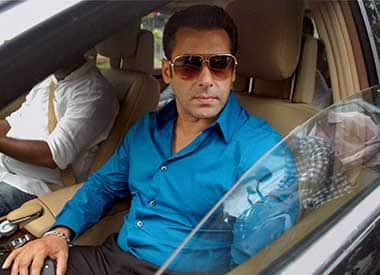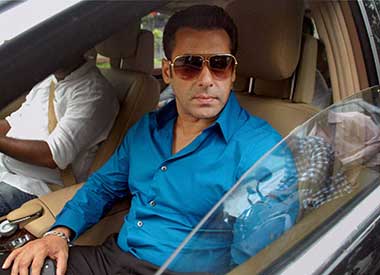Mumbai: The Bombay High Court, while dictating the verdict on appeal filed by Bollywood superstar Salman Khan against his conviction in the 2002 hit-and-run case, on Tuesday referred to evidence relating to his drunken driving and said there were several anomalies in his version. For the second day today, Justice AR Joshi continued to deliver the judgement in the court on Khan’s appeal challenging the five-year sentence imposed on him by a Mumbai sessions court. The judge referred to a series of lacunae right from extraction of blood samples to its transfer, preservation and testing to check the presence of alcohol. [caption id=“attachment_2443272” align=“alignleft” width=“380”]  File photo of Salman Khan. PTI[/caption] The judge observed that “anomalies” and “missing links” creates doubt over the crucial piece of biological evidence. After the mishap, Khan was sent to civic-run Bhabha Hospital at Bandra, however, blood extraction facility was not available and Bandra Police Station’s Senior Inspector Kishan Shengal (PW-27) sent him to government-run JJ Hospital where the blood sample was collected by Dr Shashikant Pawar (PW-20). The medical officer extracted the blood and it was subsequently analysed by Dattatraya Khobrajirao Bhalshankar (PW-18), the assistant chemical analyser (CA). Justice Joshi, who is in the process of dictating the verdict, also noted discrepancies in the examination of blood samples. “PW-20 carried out clinical exam of the appellant (Khan)…he found smell of alcohol in his breath. Later, he drew his blood sample and put it in two vials, which was sealed by the ward boy. He had drawn 6 ml of blood and has put it in two vials, 3 ml in each of them, ultimately, what reached the CA was 4 ml of blood in one vial,” he noted. “PW-20 gave one sealed envelope containing two forms — form A and form B — and two vials….at police station, PW-21 (police constable) was given two sealed envelopes to be given to CA…he gives two envelopes to the receiving clerk of the FSL, who has not been examined in the court. PW-18 says one police constable gave him the blood samples…this is a missing link in the biological evidence,” the judge noted. Justice Joshi said, “…in fact, greater care could have been taken by the CA if his evidence has to be accepted as expert evidence and in order to place reliance, then the handling of samples at various stages from blood extraction to blood examination should have been proper.” He also said that samples must have been placed under “proper custody” to prevent “internal fermentation”, to render the final results as not being “useless”. “It was argued that it was stored at the refrigerator at the ante-chamber of PW-27. There is nothing from the prosecution whether this was officially done. Even if unofficial, there is nothing on record to show that there is such a refrigerator. If it was done officially, there should have been a record,” the judge said. Dwelling upon the testimony of Kalpesh Verma (PW-12), parking assistant at JW Marriott Hotel which Khan visited just before the incident, Justice Joshi observed, “…the effect of his evidence does not in anyway imply that the appellant was driving the car.” Verma had handed Salman the car after he (the actor) came out of JW Marriott. However, the court said, “This witness is silent on the condition of the appellant when he came out of the hotel.” He has seen him sitting in the driver’s seat with the AC on, and later closed the door after receiving tips. He then proceeded to keep the tips of Rs 500 in a common box and on return saw the car going away. Khan had also visited Rain Bar before going to JW Marriott on the ill-fated day. Analysing the evidence of Malay Bag (PW-5), the waiter of Rain Bar and Restaurant and its manager Rizwan Ali Rakhangi (PW-9) and the examination of bills, Justice Joshi said, “The trial court has not done analysis whether these bills can be accepted to prove the drunkenness of the appellant-accused.” The judge said that chief public prosecutor Sandeep Shinde has pointed out that PW-5 during examination-in-chief said that Khan has a “white coloured glass” in his hand, while defence counsel Amit Desai argued that in cross-examination the witness has said it was a “clear liquid.” “PW-5 (waiter) states that he has regular visitors to the bar, but defence counsel has said that everyone who visits the bar does not necessarily consume alcohol,” the judge said, adding that there is no concrete material before the court from PW-5 and PW-9 that he had consumed alcohol in the bar. The dictation of verdict would continue on Wednesday. PTI
The Bombay High Court, while dictating the verdict on appeal filed by Bollywood superstar Salman Khan against his conviction in the 2002 hit-and-run case, on Tuesday referred to evidence relating to his drunken driving and said there were several anomalies in his version.
Advertisement
End of Article
Written by FP Archives
see more


)

)
)
)
)
)
)
)
)



